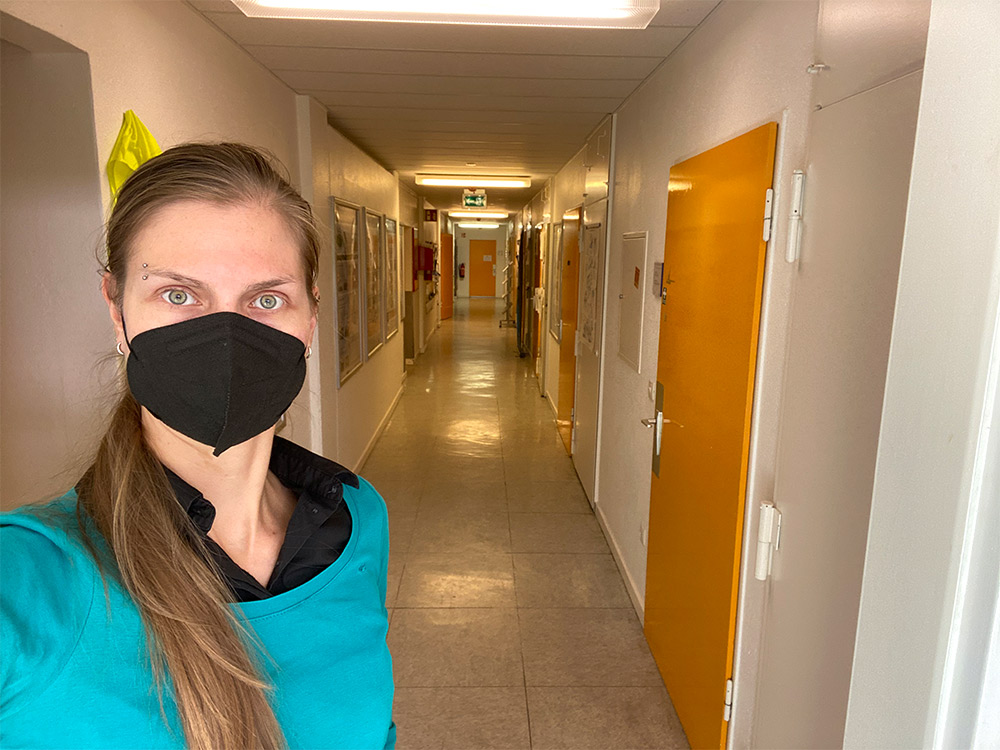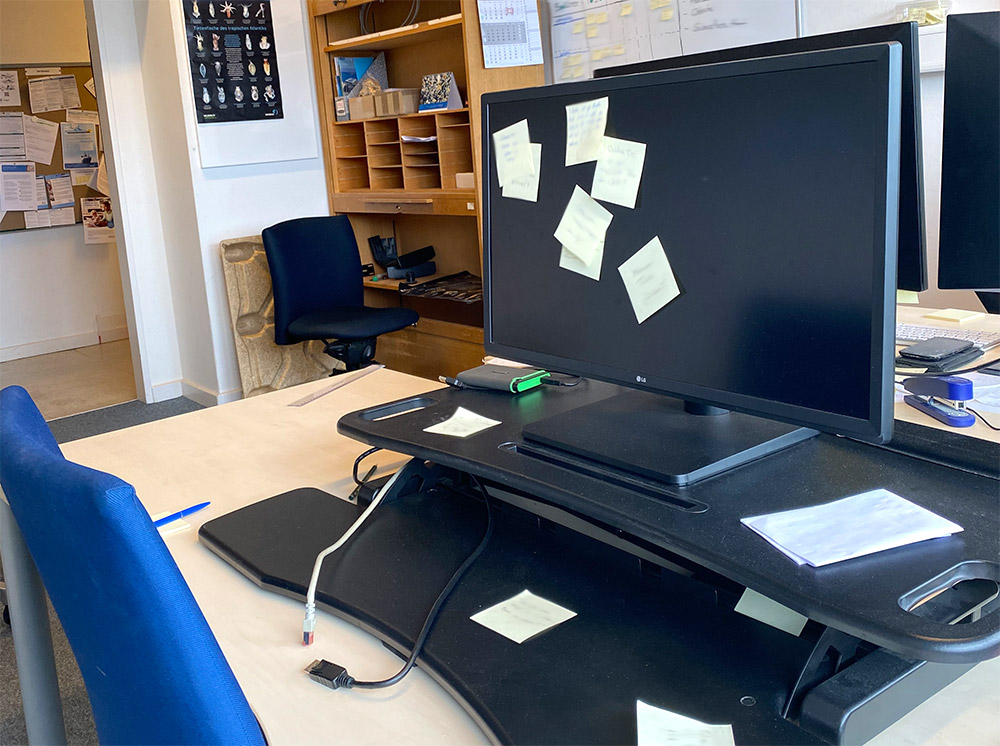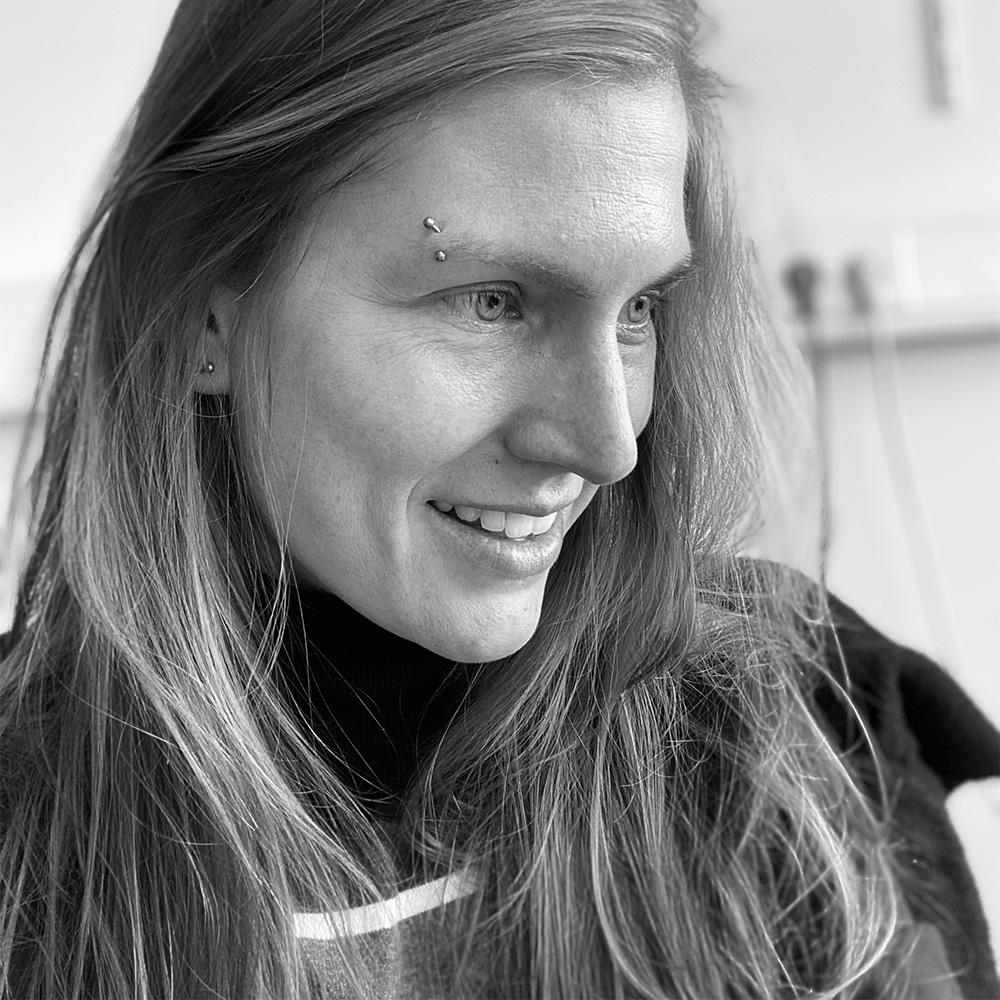For over a year now, I have been managing the public relations of the three ocean research projects CUSCO, EVAR and REEBUS. A lot has happened since then – Corona, lockdown, (temporary) home office. But now something new has happened that I didn’t expect.
I am alone. Alone in the office, alone in the hallway, alone in the department. The reason for this is that most of my colleagues have traveled to Gran Canaria. To the next mesocosm experiment of the OceanNETs project. And all of a sudden I am less among people at work than I have been in lockdown.
I don’t begrudge them that. A little bit of sun is certainly a nice thing now. Here in Germany, autumn is already greeting us. What I didn’t expect was how much being alone at work would keep me busy. The first half hour was great – peace at last. After that, it got boring.
There’s plenty to do. More than enough, in fact. But something is missing. I don’t know if it’s the short morning greetings or the background noise in the hallway. Maybe it’s the little anecdotes of the scientists or being able to ask my colleague questions at any time when I’m stuck and to discuss new theses with him.

Empty corridors – being alone is new for me at GEOMAR.
Most people I know can’t work well in multioccupied offices. Noise distracts them. I find silence distracting. I chose a job in public relations because I like to be around people. After work, I appreciate quiet as well, but during the day, I love talking to people and about them. What’s on their mind. Who they are. What they do and why. A communications job without people is like fish without water. Still existing, but not good for much longer.
However, I believe that working as a scientist can feel alone, perhaps even lonely, much more often and for longer. What I experience, only for about two months, others experience over most of their scientific careers.
Perhaps less so in ocean sciences than elsewhere. Field experiments and shipboard excursions weld people together. By necessity, one is on the road together with a team for months at a time. But science usually consists of your own experiments, laboratory work and the tedious writing of publications. And the ocean scientists are not always on the move or among people. At some point, the results have to be evaluated and published.
Being alone as an asset vs. being alone as a fault indicator
Being alone doesn’t necessarily have anything to do with the number of people around you. In science, you are quickly left to your own devices. During the bachelor’s thesis, someone usually helps you. If it goes well, later on, too. But it doesn’t always go well. The dependency relationships in which you find yourself as a young scientist can also give you the feeling of being alone. Alone with everything. Even with all the problems.
For those who long for peace and quiet in the office, being alone is a benefit. In the system of science, the feeling of being alone can be the fault indicator for something bigger. For something systemic that hangs. And since the structure is distinctly hierarchical, and there is also no complaint management or alternatives to change, those who are alone here can really only help themselves. Networking via the Internet can at least provide moral support in such situations.
Help yourself, then – the newly founded team will help you
One of the few colleagues from the ocean projects who stayed with me at GEOMAR confirms many of my impressions: Science is a tough field that can feel quite lonely – though that is certainly true for many other jobs. Her solution to the problem, when it affected herself, was to organize regular meetings (the DokTeam and the Postdoc Team) together with other colleagues who were doing their PhDs or were in the postdoc period. To counteract being alone. To have someone for professional and emotional exchange. To simply be allowed to have a good or bad time in science without judgment.
I only have two months to bridge until it gets noisy again in the department. Others can’t choose and have to push through being alone for a long time. I have a lot of respect for that.
As a small solution for the moments when I would like to have my colleague back in the office, I now simply write any question I would ask him if he were there on a memo note and stick it on his computer screen. Right on top of the screen. Just so he’ll realize how much I’ve missed our exchange together when he gets back.

My colleague is still away for two months. When he comes back, his screen will probably be full of yellow notes. I’ll put a bar of chocolate on his desk too, though.

Author: Ann Kristin Montano
Former scientist who worked long enough in other fields to build up stereotypes about scientists. Now likes to work among scientists to break down the stereotypes. Fears that the return to noisy normality in two months will be much more difficult than now the transition to calm.